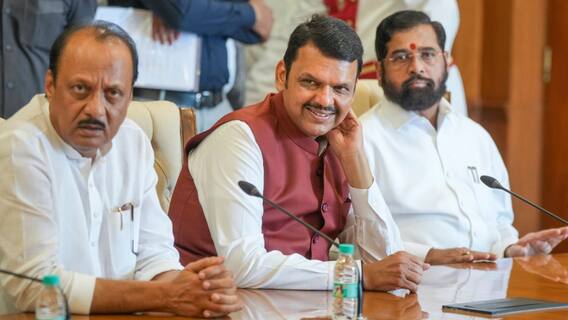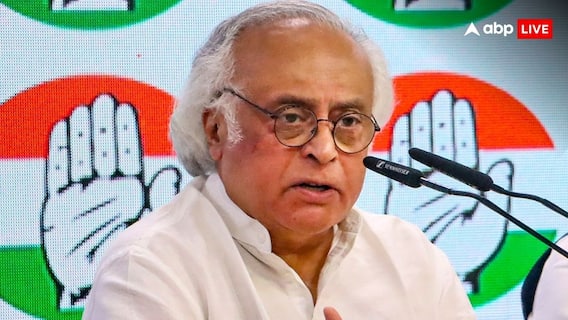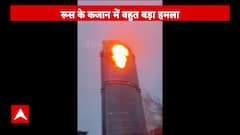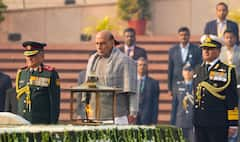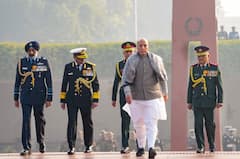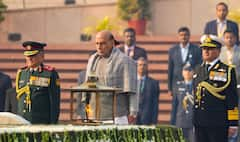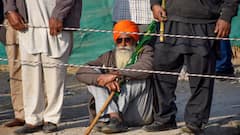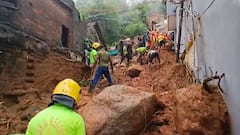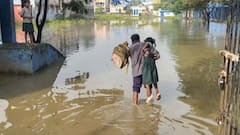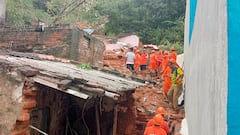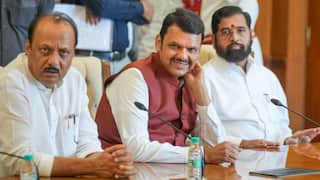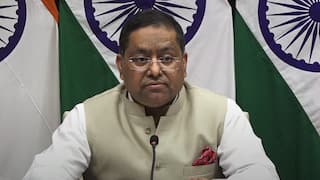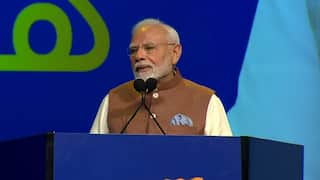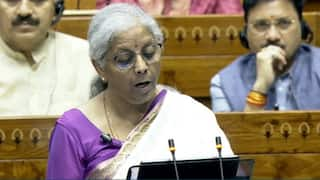Explorer
Advertisement
Cyclone Vayu may hit Gujarat coast on Thursday; Amit Shah reviews preparations
A deep depression over the Arabian Sea which brewed over the past two days has intensified into a cyclonic storm and is likely to hit the Gujarat coast on June 13 morning.

Fishermen try to control their boat amidst rough sea waters at Puri beach. (PTI Photo/ File)
NEW DELHI: A deep depression over the Arabian Sea which brewed over the past two days has intensified into a cyclonic storm and is likely to hit the Gujarat coast on June 13 morning, the India Meteorological Department (IMD) said on Tuesday. Cyclone 'Vayu' is further likely to intensify into a severe cyclonic storm in the next 12 hours, the Cyclone Warning Division of the IMD said in a bulletin.
"It is very likely to move nearly northward and cross Gujarat coast between Porbandar and Mahuva around Veraval and Diu region as a Severe Cyclonic Storm with wind speed 110-120 kilometres per hour gusting to 135 kilometres per hour during early morning of June 13," the bulletin said.
In its forecast for June 13, the IMD said,"Gale wind speed of the order of 110-120 kmph gusting to 135 kmph very likely over north Arabian Sea and Gujarat coast in morning hours and decrease gradually thereafter. It is very likely to be 50-60 kmph gusting to 70 kmph over north Maharashtra Coasts and northern parts of eastcentral Arabian Sea."
The IMD has issued a warning of heavy rains and high winds at a speed of over 110 kilometres per hour on June 13 and 14 in the coastal areas of Saurashtra and Kutch.
The Gujarat government is on high alert. It deployed National Disaster Response Force personnel in the coastal areas of Saurashtra and Kutch on Tuesday morning.
It has advised fishermen against venturing into the sea in the next few days, while ports have been directed to flag a danger signal.
"Storm surge of height of about 1-1.5 metres above the astronomical tides likely to inundate the low lying coastal areas of Kutch, Devbhoomi Dwarka, Porbandar, Junagarh, Diu, Gir Somnath, Amreli and Bhavnagar districts at the time of landfall," the weather office said in the bulletin.
Last month, 'very severe cyclonic storm' 'Fani' had battered Odisha and killed over 60 people.
Amit Shah reviews cyclone Vayu preparations
Home Minister Amit Shah Tuesday reviewed the preparations for cyclone Vayu, and directed officials to ensure all possible steps for the safety of people, officials said. The National Disaster Response Force (NDRF) has pre-positioned 26 teams, comprising about 45 personnel each, and the rescuers are equipped with boats, tree-cutters, telecom equipments.
The NDRF is also moving another 10 teams as requested by the Gujarat government.
After review, the Home minister directed the senior officials to take every possible measure to ensure that people are safely evacuated. He also told them to ensure maintenance of all essential services such as power, telecommunications, health, drinking water and their immediate restoration in the event of damages caused to them, a Home Ministry official said.
How Cyclones get their names
Cyclones derive their names through a systematic procedure laid down by the World Meteorological Organisation (WMO) and the United Nations Economic and Social Commission for Asia and the Pacific (ESCAP). Eight north Indian Ocean countries - Bangladesh, India, the Maldives, Myanmar, Oman, Pakistan, Sri Lanka and Thailand - have prepared a list of 64 names.
When a hurricane hits these countries, the Regional Specialised Meteorological Centre (RSMC), housed in the IMD office in New Delhi picks up the name next on the list. The RSMC has been set up in Delhi by the WMO for forecasting tropical cyclones in the Arabian Sea and Bay of Bengal.
The practice of naming storms (tropical cyclones) began years ago to help in their quick identification while issuing warnings because names are presumed to be far easier to remember than numbers or technical terms.
In the 1970s, the WMO in Geneva asked some countries around the Pacific Ocean to prepare a list of names. The decision to name the cyclones in the Indian Ocean was taken at a meeting of WMO/ESCAP in 2000.
Why name cyclones?
The practice of naming storms (tropical cyclones) began years ago in order to help in the quick identification of storms in warning messages because names are presumed to be far easier to remember than the numbers and technical terms. Many agree that appending names to storms makes it easier for the media to report on tropical cyclones, heightens interest in warnings and increases community preparedness.
Importance for naming tropical cyclones
1: It would help identify each individual tropical cyclone.
2: It helps the public to become fully aware of its development.
3: Local and international media become focused to the tropical cyclone.
4: It does not confuse the public when there is more than one tropical cyclone in the same area.
5: The name of the tropical cyclone is well remembered by millions of people as it is an unforgettable event.
6: Warnings reach a much wider audience very rapidly.
Follow Breaking News on ABP Live for more latest stories and trending topics. Watch breaking news and top headlines online on ABP News LIVE TV
View More
Advertisement
Trending News
Advertisement
Advertisement
Top Headlines
India
India
World
India
Advertisement


Sagarneel SinhaSagarneel Sinha
Opinion




